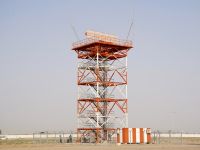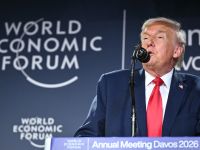Thousands of Lebanese gathered Wednesday to mark the first anniversary of the catastrophic Beirut port blast and protest the lack of progress in the investigation about the explosion that caused the death of more than 200 people.
As a memorial service got underway at the port, water cannon and tear gas were fired at protesters who threw stones towards security forces near parliament. Eight people were wounded, the Red Cross said.
At the anniversary of the Beirut port blast, president @EmmanuelMacron will seek to raise more than $350 million in aid for #Lebanon at a donors’ conference.https://t.co/ns8yLR6mjK
— EURACTIV (@EURACTIV) August 4, 2021
In a virtual conference to aid Lebanon, French President, echoed by other Western leaders, delivered a scathing attack on Lebanese politicians.
Emmanuel Macron criticised a “failing” Lebanese political class he blamed for their country’s economic turmoil.
“Lebanese leaders seem to bet on a stalling strategy, which I regret and I think is a historic and moral failure,” Macron said in opening remarks as host of the international donors’ conference.
“There will be no blank cheque for the Lebanese political system. Because it is they who, since the start of the crisis but also before that, are failing.”
Macron has visited Beirut twice since the port blast, raised emergency aid and imposed travel bans on some senior Lebanese officials in his quest for a reform package.
He has also persuaded the European Union to agree on a sanctions framework that is ready to be used. Experts expect more sanctions ahead against Lebanese officials.
In Wednesday’s videoconference, Lebanese President Michel Aoun appealed for solidarity, saying the COVID-19 pandemic had caused drug shortages and exacerbated the plight of the Lebanese people.
“Lebanon is currently going through the hardest times,” Aoun said.
Addressing the messages of urgency from Macron and the international community on the need for a new government, he said: “Today we are in a new phase. I do hope that a government is formed, a government which is capable of implementing the required reforms.”
Lebanese politicians have only made the situation ”worse by placing their individual and political interests above the Lebanese people’s interests,” Macron criticized. “Lebanon definitely deserves better.”
US President Joe Biden offered nearly $100 million in the conference but he warned that, “no amount of outside assistance will ever be enough if Lebanon’s own leaders do not commit to the hard and necessary work of reforming the economy and combatting corruption. It’s essential. It has to stop now”.
Criticism of Lebanese politicians was also voiced by Germany. “Let me be frank: this crisis is mostly manmade. Lebanese political actors have not lived up to their responsibilities and to the legitimate expectations of the Lebanese people,” German Foreign Minister Heiko Maas told the conference.
The international conference raised some $370 million in aid to meet the country’s humanitarian needs.
The pledges, to be delivered over the next 12 months, go beyond the $357 million sought in the third global effort to show support for the Lebanese people, President Emmanuel Macron said at the virtual conference co-hosted by France and the United Nations.
France will provide 100 millions euros ($118.6 million) in the coming months, Macron said. Paris will also send 500,000 doses of COVID-19 vaccines for the country.
The conference drew 33 states, some represented by heads of state or government, diplomats and 13 international organizations, plus five representatives of Lebanese civil society, according to a final statement from Macron’s office. Participants included Canada’s Prime Minister Justin Trudeau, Egypt’s President Abdel Fattah el-Sissi, King Abdullah II of Jordan and European Council President Charles Michel.
Experts say distrust of Lebanese politicians is likely to complicate the task of delivering the aid.
Last year’s conference in the wake of the blast raised about $280 million, with the emergency aid being kept away from politicians and channelled through NGOs and aid groups.
The new aid will be unconditional, Macron’s office said, but about $11 billion raised in 2018 remains locked away and conditional on a series of reforms
In Wednesday’s videoconference, Lebanese President Michel Aoun appealed for solidarity, saying the COVID-19 pandemic had caused drug shortages and exacerbated the plight of the Lebanese people.
“Lebanon is currently going through the hardest times,” Aoun said.
Development model overhaul
In a statement laying out the conference’s conclusions, participants said that Lebanon’s “development model needs to be overhauled to ensure the country gets back into a sustainable and people-centred development process.”
France says a forthcoming conference on #Lebanon needs to gather $357 million in aid to meet the most urgent needs of country's population. The situation has worsened since the port blast. Macron office: Wednesday's conference is to tackle emergency needs only
— Zeina Khodr (@ZeinakhodrAljaz) August 2, 2021
“Humanitarian assistance cannot be a long-term solution,” the conference concluded, noting that “structural economic and financial assistance will require profound changes expected from Lebanon’s leaders.”
The conference said a new government under Lebanon’s new Prime Minister-designate Najib Mikati must start by “swiftly launching, conducting and concluding negotiations in good faith with the International Monetary Fund,” as well as preparing ”transparent and impartial” elections for 2022 and repairing the damaged port.
One year since the disaster, caused by a huge quantity of ammonium nitrate kept at the port for years, no senior official has been held to account, infuriating many Lebanese as their country suffers financial collapse.
An investigation is stalling, with requests denied for immunity to be lifted from senior politicians and former officials. All those sought for questioning by the Lebanese investigators have denied any wrongdoing.
“Justice isn’t just the demand of the families of the victims but of all Lebanese,” Maronite Patriarch Bechara Boutros Al-Rai, Lebanon’s most senior Christian cleric, said during the memorial service. All immunities should be lifted, he added.
“We want to know who brought in the explosives … who allowed for their unloading and storage, who removed quantities of it and where it was sent,” he said.
Saudi Arabia’s foreign minister said on Wednesday the insistence of the Iran-backed Hezbollah group on imposing its will in Lebanon was a major reason for the country’s crisis.
Prince Faisal bin Farhan Al Saud also said Riyadh was concerned that no tangible results had been reached in investigations into the Beirut port explosion that devastated swathes of the capital a year ago. He said any assistance to Lebanon would be linked to serious reforms there.
According to the UN, over half of Lebanese people now live in poverty, one in three Lebanese suffer from food insecurity and nearly four million people are at risk of not accessing safe water.
This article has been adapted from its original source.










